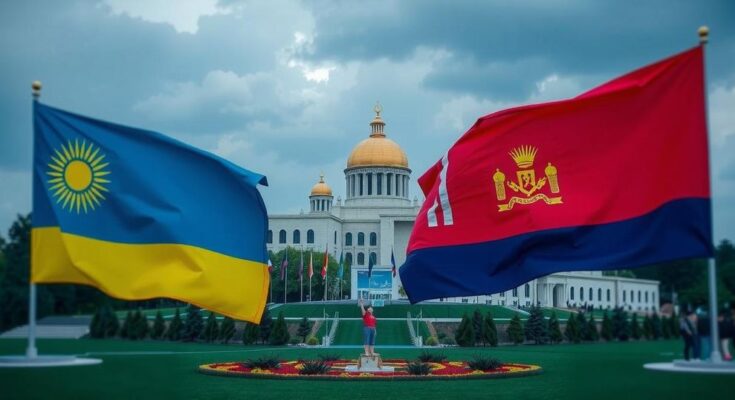Kazakhstan and Mongolia have formalized a partnership in nuclear energy, while also enhancing infrastructure through significant loans from the ADB. The collaboration aims to leverage both countries’ natural resources and engage internationally in nuclear power plant initiatives amidst growing interest from Western nations. Kazakhstan’s capital, Astana, continues to emerge as a unique tourist destination.
Kazakhstan and Mongolia have signed a significant memorandum of cooperation in the nuclear energy sector, marking a pivotal partnership aimed at utilizing their abundant natural resources. The agreement was finalized following Kazakhstan’s President Kassym-Jomart Tokayev’s recent state visit to Ulaanbaatar and emphasizes the exploration and development of various minerals, showcasing both nations’ commitment to shared economic growth in mining and energy. In addition to this agreement, they established a strategic partnership through a Joint Declaration, exchanging documents ceremoniously to solidify their collaboration. In a related context, Kazakhstan’s Ministry of Energy is moving ahead with plans for nuclear power plant construction, engaging potential international partners such as Russia’s Rosatom, China’s National Nuclear Corporation, South Korea’s Hydro & Nuclear Power, and France’s EDF. A recent referendum indicated strong public support for this initiative, and international oversight from the International Atomic Energy Agency (IAEA) shall be sought to ensure compliance. Kazakhstan seeks to position itself strategically within the global nuclear supply chain, particularly since it was responsible for 43% of the world’s uranium output in 2022. This creates an opportunity for Western nations to engage more deeply in Kazakhstan’s nuclear endeavors, providing advanced technology to support these initiatives. Furthermore, a delegation from Kazakhstan’s Energy Ministry recently visited South Korea to discuss nuclear collaboration and opportunities in the oil and gas sector, highlighting ongoing efforts to engage with potential international partners as Kazakhstan seeks a balanced approach in its energy sector. In parallel, the Asian Development Bank (ADB) has approved a significant loan to KazAvtoZhol for road reconstruction projects aimed at improving national and international connectivity, thereby enhancing Kazakhstan’s logistic capabilities vital for economic growth. Finally, the unique allure of Astana, Kazakhstan’s capital, is attracting attention as a burgeoning tourist destination showcasing modern architecture, historic sites, and a diverse cultural scene. The city’s offerings contrast sharply with those of Almaty, inviting visitors to experience its distinct charm and hospitality. Overall, these developments underscore Kazakhstan’s proactive approach in both the nuclear energy sector and its infrastructural enhancements, while also promoting tourism and fostering international partnerships.
Kazakhstan is a nation rich in natural resources and is positioned as one of the world’s leading producers of uranium, making its nuclear energy initiatives particularly noteworthy. The recent cooperation with Mongolia in the nuclear sphere serves to strengthen Kazakhstan’s strategic partnerships and its role in international energy markets. The strengthening bilateral ties signify a deliberate push towards utilizing both countries’ resources more effectively. Additionally, Kazakhstan’s push for modern infrastructure through ADB funding reflects its aspirations to enhance connectivity, which is crucial for economic growth. Furthermore, Astana represents the modern face of Kazakhstan, transitioning into an internationally appealing destination through its architectural innovations and cultural offerings.
Kazakhstan’s proactive measures in the nuclear energy sector through its collaboration with Mongolia and ongoing discussions with potential international partners highlight its ambition to become a key player in the global energy market. Simultaneously, the infrastructure improvements supported by the Asian Development Bank are essential to bolstering the country’s economic framework. The ongoing development of Astana as a tourist destination further showcases the nation’s cultural richness and ambitions on the international stage. Together, these elements portray Kazakhstan as a nation poised for growth and partnership in a rapidly changing global landscape.
Original Source: en.inform.kz




